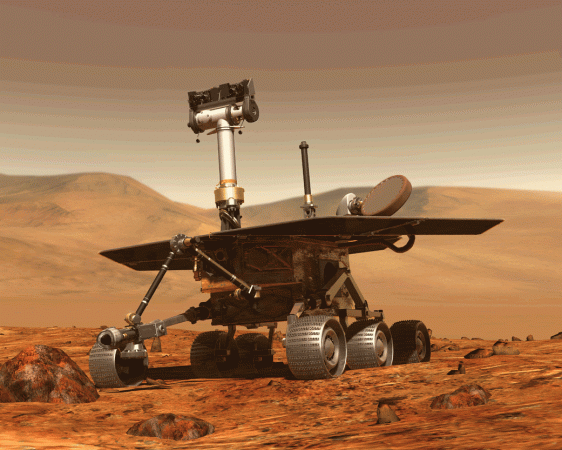
With skies clearing over s resting spot in Mars, NASA believes that the solar-powered rover will soon receive enough sunlight to automatically initiate recovery procedures --but only if it is able to.
The impact of the latest storm on Opportunity's systems is unknown but could have resulted in reduced energy production, diminished battery performance, or other unforeseen damage that could make it difficult for the rover to fully return online, NASA noted.
"The Sun is breaking through the haze over Perseverance Valley (the rover's resting spot), and soon there will be enough sunlight present that Opportunity should be able to recharge its batteries," said John Callas, Opportunity project manager at NASA's Jet Propulsion Laboratory (JPL) in California, US.
A dust storm encircling Mars first detected May 30, cut off solar power and halted operations for the nearly 15-year-old rover. Opportunity last communicated with Earth on June 10. Its current health is unknown, NASA said.
Engineers are relying on the expertise of Mars scientists analysing data from the Mars Colour Imager (MARCI) aboard NASA's Mars Reconnaissance Orbiter (MRO) to estimate the rover's position.
According to MARCI images, the "Opportunity site have shown no active dust storms for some time within 3,000 kilometers of the rover site".
While NASA is hopeful that the rover will attempt to call home, the team is also prepared for an extended period of silence.
"If we do not hear back after 45 days, the team will be forced to conclude that the Sun-blocking dust and the Martian cold have conspired to cause some type of fault from which the rover will more than likely not recover," Callas noted.
In that case, the team will continue passive listening efforts for several months, with the help of JPL Radio, which will scour the signal records taken by a very sensitive broadband receiver of radio frequencies emanating from Mars, looking for a sign that the rover is trying to reach out.
However, NASA said that even if the team hears back from Opportunity during either phase, there is no assurance the rover will be operational.









!['Had denied Housefull franchise as they wanted me to wear a bikini': Tia Bajpai on turning down bold scripts [Exclusive]](https://data1.ibtimes.co.in/en/full/806605/had-denied-housefull-franchise-they-wanted-me-wear-bikini-tia-bajpai-turning-down-bold.png?w=220&h=138)



